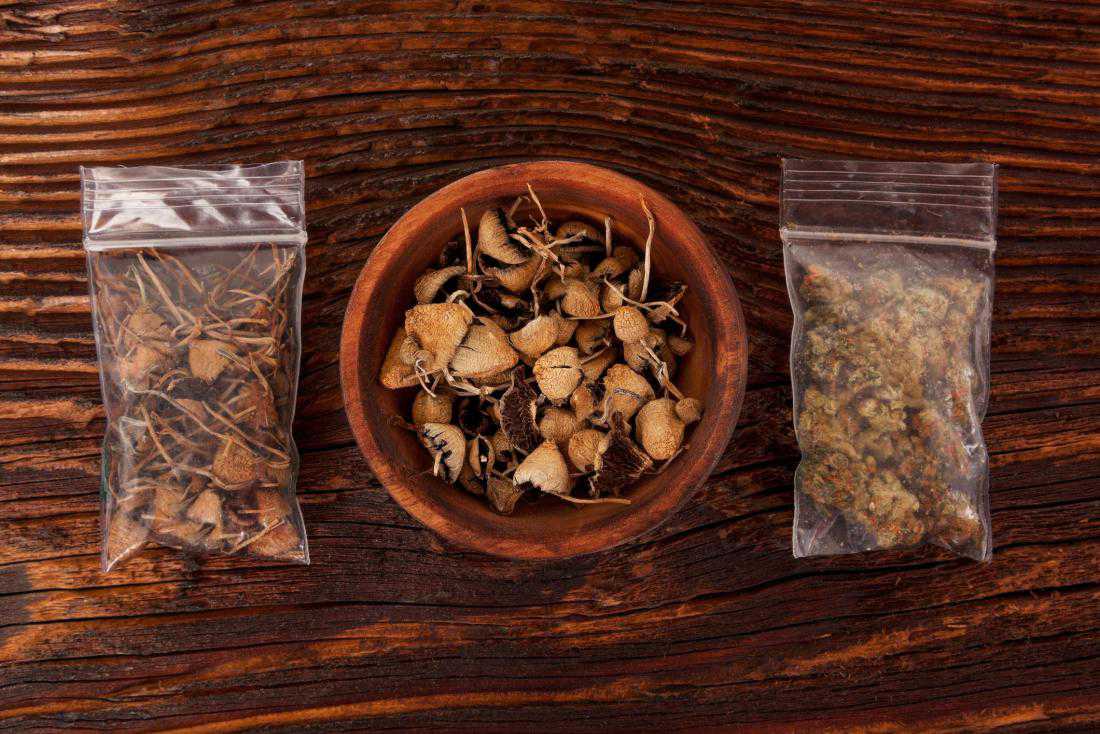Psychedelics: Risks and benefits of microdosing revealed
05 March, 2019

New research, published in the journal ACS Chemical Neuroscience, finds both potential benefits and risks of using psychedelic microdosing to treat mental health problems. The study reveals effects on cognitive skills and sociability, as well as metabolic and neuronal consequences.
An emerging body of research is making a case for using psychedelic drugs to treat mental health issues.
For instance, two studies published last year showed that psilocybin, the active psychedelic compound in magic mushrooms, alleviated symptoms of treatment-resistant depression.
Moreover, the psilocybin did so without causing any side effects of conventional antidepressants. Such side effects typically include emotional blunting or apathy.
Another study looked at the potential of the Amazonian plant mixture Ayahuasca to treat depression and alcohol use disorder. Ayahuasca "may be a safe and promising treatment" for these mental health problems, concluded the researchers.
People who use psychedelics to improve their mental health and boost their overall well-being tend to do so with a technique called microdosing. Taking microdoses of a psychedelic drug means taking only a fraction of a dose that is required to have a full-blown psychedelic experience, or "trip."
Until now, no studies had examined the effects of microdosing on animal behavior. But new research investigates the effects of the hallucinogen N,N-Dimethyltryptamine (DMT) on male and female rodents in an attempt to discover its effects on mental and physical health.
The lead researcher is David Olson, Ph.D., an assistant professor in the departments of Chemistry and Biochemistry and Molecular Medicine at the University of California, Davis.
Positive effects of DMT microdosing
The researchers chose DMT because the compound can be found in Ayahuasca, and its molecular structure is analogous to that of other microdosing drugs, such as LSD and psilocybin.
Olson and colleagues gave the rats 1 milligram/kilogram of body weight, which is a tenth of the dose that would be necessary to induce a hallucinogenic experience in the rodents.
The rats took this dose once every 3 days for a period of 2 months. In the 2 days between the doses, the researchers tested the rats' mood and cognitive function.
The scientists found that DMT helped the rodents overcome their fears in a test used to model anxiety and post-traumatic stress disorder.
Another common test examines the effectiveness of antidepressants by measuring the rodents' "freezing" behavior. This is a widely accepted method of assessing the degree of fear in rodents.
Researchers believe that the less a rodent freezes in response to a threat and the more mobile they are, the more effective the antidepressants are.
In the present study, DMT microdosing led to less immobility in the rodents. Cognitive and sociability tests, on the other hand, did not reveal any effects of DMT.
TAG(s):
